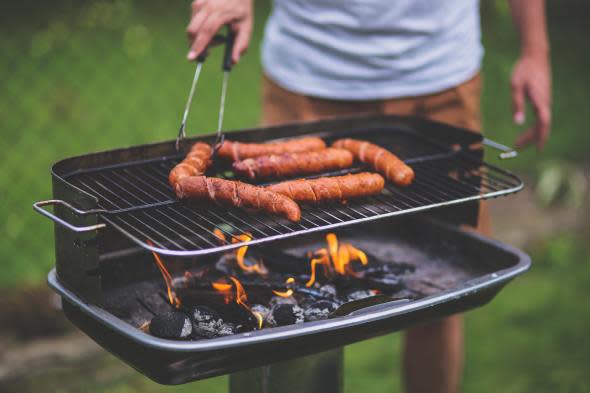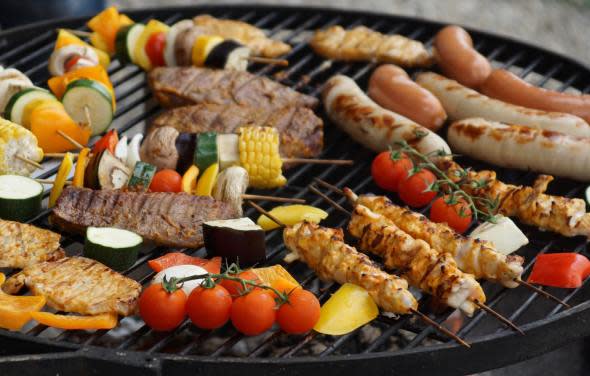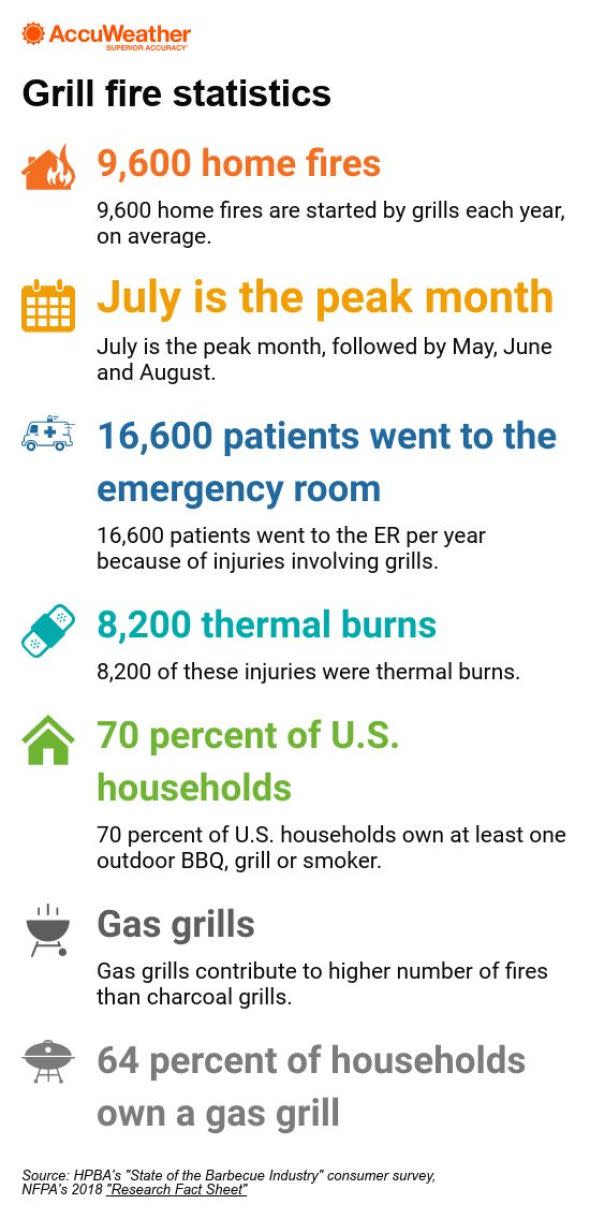How to avoid grilling mishaps this Memorial Day weekend
Memorial Day marks the symbolic start to summer and grilling season. Outdoor barbecues are one of the more popular Memorial Day pastimes.
Memorial Day is one of the most popular grilling days of the year, with nearly 60 percent of Americans planning to grill, according to Hearth, Patio and Barbecue Association (HPBA).
This popular tradition is not without the potential for accidents.
July is the peak month for grill fires with 17 percent, followed by May (14 percent), June (14 percent) and August (13 percent). Winter months, including December, January and February, account for three percent of the fires, according to the National Fire Protection Association (NFPA) Vice President of Outreach and Advocacy Lorraine Carli.
If a fire started by a grill is reported to the fire department, it is included in the data. However, it may be out when the fire department arrives, Carli said in an email.

Seven out of every 10 adults in the United States have a grill or smoker, which increases the risk of potential accidents, according to NFPA.
From 2011 to 2015, fire departments went to an annual average of 9,600 home fires involving grills, hibachis or barbecues, including 4,100 structure fires and 5,500 outside or unclassified fires, according to NFPA.
These 9,600 home fires caused annual averages of 10 civilian deaths, 160 reported civilian injuries and $133 million in direct property damage.
There was an average of 16,600 patients per year that went to emergency rooms because of injuries involving grills from 2012 to 2016. Nearly half, 49 percent, of the injuries were thermal burns, according to NFPA.
"A wide variety of situations cause grill-related injury. Injuries associated with lighting the grill typically involve the person doing the lighting. Lighter fluid was involved in some incidents with charcoal grills; others were burned with gas grill problems. These injuries were typically to adults," Carli said in an email to AccuWeather.
Some burns occurred when someone, often a child, bumped into, touched or fell on the grill, grill part or hot coals. Children under five accounted for an average of 35 percent of the 4,500 non-fire thermal grill burns.
Five out of six grills involved in home fires were fueled by gas, while 14 percent used charcoal or other solid fuel, according to NFPA.
Gas grills were involved in an average of 7,900 home fires per year, including 3,300 structure fires and 4,700 outdoor fires annually. Leaks or breaks were primarily a problem with gas grills.
Charcoal or other solid-fueled grills were involved in 1,300 home fires per year, according to NFPA.
There are a variety of causes of grill fires.
"Some are 'normal' cooking fires caused by a failure to clean the grill, unattended cooking or something that could catch fire too close to or on the grill (or the grill is too close to something flammable). Because grills are usually portable, they may be placed too close to a building. Leaks can be an issue with gas grills," Carli said.

Prior to lighting up the grill, it is important to be familiar with grilling safety precautions. NFPA provides safety tips on their website to help prevent grilling fire accidents.
General grilling tips
Only use propane and charcoal BBQ grills outdoors.
The grill should be placed well away from the home, deck railings and out from under eaves and overhanging branches. Eleven percent of home grill structure fires began when an outside wall caught fire. Six percent began with some type of structural member or framing.
Keep children and pets away from the grill area.
Keep your grill clean by removing grease or fat buildup from the grills and in trays below the grill. In roughly one of every five fires, the grill had not been cleaned.
Never leave your grill unattended.
Before you use your grill:
Check the major connection points between the gas (propane) tank hose and the regulator and cylinder, and where the hose connects to the burners. Tighten if loose.
Check the gas (propane) tank hose for the potential (gas) leaks. To do that apply a light soap and water solution to the hose using a brush or spray bottle. Turn the propane tank on. If there is a gas leak, the propane will release bubbles around the hose (large enough to see).
If there are no bubbles, your grill is safe to use.
If there are bubbles, turn off the tank and check connections, then have your grill serviced by a professional before using it again.
If the leak doesn't stop, call the fire department immediately.
When the grill is on:
As you are cooking, if you smell gas, turn off the gas tank and burners.
If the leak stops immediately, get the grill serviced by a professional before using it again.
If the smell continues, move away from the grill and call the fire department immediately. Do not move the grill.
Charcoal grills
There are several ways to get the charcoal ready to use. Charcoal chimney starters allow you to start the charcoal using newspaper as a fuel.
If you use a starter fluid, use only charcoal starter fluid. Never add charcoal fluid or any other flammable liquids to the fire.
Keep charcoal fluid out of the reach of children and away from heat sources.
There are also electric charcoal starters, which do not use fire. Be sure to use an extension cord for outdoor use.
When you are finished grilling, let the coals completely cool before disposing in a metal container.
If a fire does break out and you cannot contain it in a safe way, contact your fire department immediately.

For more safety and preparedness tips, visit AccuWeather.com/Ready.

